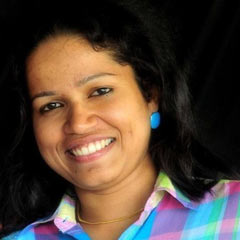Unique Kerala | Religion no bar, this Malabar mosque won't let you go hungry

Mail This Article
Malappuram: Sharing one's food with the hungry is a noble deed. The caretakers of the Moonnakkal Juma Masjid at Valanchery town in Malappuram district also aver that the biggest offering to be made to the Almighty is by feeding the poor. They practise what they believe and the masjid, popularly known as Moonnakkal Palli, is thronged by devotees of all faiths. The offerings made by the devotees, both Muslims and others, are distributed to the poor coming here.
More than 15,000 poor people from 171 mahals (localities), spread across 21 surrounding panchayats of Valanchery reportedly benefit from the rice donation being held at the entrance to the mosque every second Sunday. Sometimes the queue gets longer, but the masjid authorities make sure that nobody leaves without taking home the amount of rice they had expected.
From time immemorial, the practice of distributing rice exists, recollects the authorities here, and when the crowd increased, they introduced 'card' system, like the government's ration card.
Those who are not able to bring rice, buy from the nearby shops and offer it at the masjid. Rice shops flank the road leading to the popular worship place.
At the foot of the old masjid, a woman in burqa, Amina, sells articles for offering at the masjid. She is the first guide to the masjid. The visitors may buy coconut oil or incense sticks to be offered at the masjid out of one's own volition. At the entrance to the old masjid - the new mosque is near its entrance - a path branches out, leading to the bays for men and women. "Everyone is a devotee. You are free to enter and pray," Amina invited the visitors.

The one to arrive first was a woman in her early 50s, Santhakumari, from Kottakkal in Malappuram district. Santha admitted that for many years her younger widowed sister Sarada had been depending on this masjid for free rice, which is being distributed twice a month. This time, she took her neighbour Ayisha to the masjid, situated uphill. "It is not the rice alone that attracts people from all religions to this masjid. You can pray here, and all that would be answered - I have experience," she shared her immense faith. The pious woman was later seen praying at the masjid. As a custom, she offered some coconut oil she had brought in a small bottle. She was given small packets of rice in return by the staff as a token of care from the mosque.
People of all faiths are welcome here. Devotees come, pray and take home rice in bundles. Jokingly, outsiders say that people in and around Moonnakkal do not have to keep their ration cards as they have a parallel source that will ensure food grain. The offerings at the masjid ultimately reach not only the people at this mahal, but also those in the neighbouring mahals, claimed Muhammed Sakkeer, executive officer of the masjid.
Sakkeer showed two types of cards: an orange one for the people from the same mahal and another in blue for people from other mahals. “Mahal committees will review the eligible card holders every five years. Hundred families from each mahal will be eligible for the card (60 Muslims and 40 non-Muslims). As devotees give sacks of rice and donate cash, there is no problem in distributing it among the needy,” Sakkeer revealed.
In the initial years, the mosque authorities used to prepare food from the donated rice and distribute among the poor, said Sakkeer. “When the amount of donated rice increased, the masjid decided to introduce cards in 1997 and distribute rice itself, instead of preparing food. More than 3,000 sacks of rice are being distributed every fortnight. The donation goes up in the holy month of Ramadan," he revealed.

At the entrance of the masjid, visitors are alerted not to fall to the tricks of the commission agents, who cajole them to buy rice from the premises. They are also advised to ensure the quality of the rice if buying. Devotees can donate rice on any day, though it is distributed to eligible families only on alternate Sundays.
Anything could be offered here, says Abdurahman, a local. “Devotees are free to offer anything that is of use to the others. The masjid accepts everything – from broom to gold -- and there is no restriction on donation too,” he added. “The rise in price of rice will never affect the poor here as they are assured of the basic food from the masjid every alternate Sunday, for the whole family. More than any recorded history on the largesse, stories that have been passed from generation to generation are popular with the locals and devotees. As years pass by, the number of visitors and devotees increase, which in turn benefits the poor,” he said.

The masjid, which is said to have been existing for 600 to 700 years, is now being taken care of by Waqf Board from 2014. Rahmathulla Nalakath is the present Muthavalli (senior imam). Locals claimed that it is the third mosque to come up in the state. The current committee believes that some of their ancestors, who believed serving the poor is the greatest offering, started this custom of distributing rice, and made the devotees believe that is the biggest offering here. The tradition was followed by the successors and has been continued so far.
Read more: Latest Kerala news


